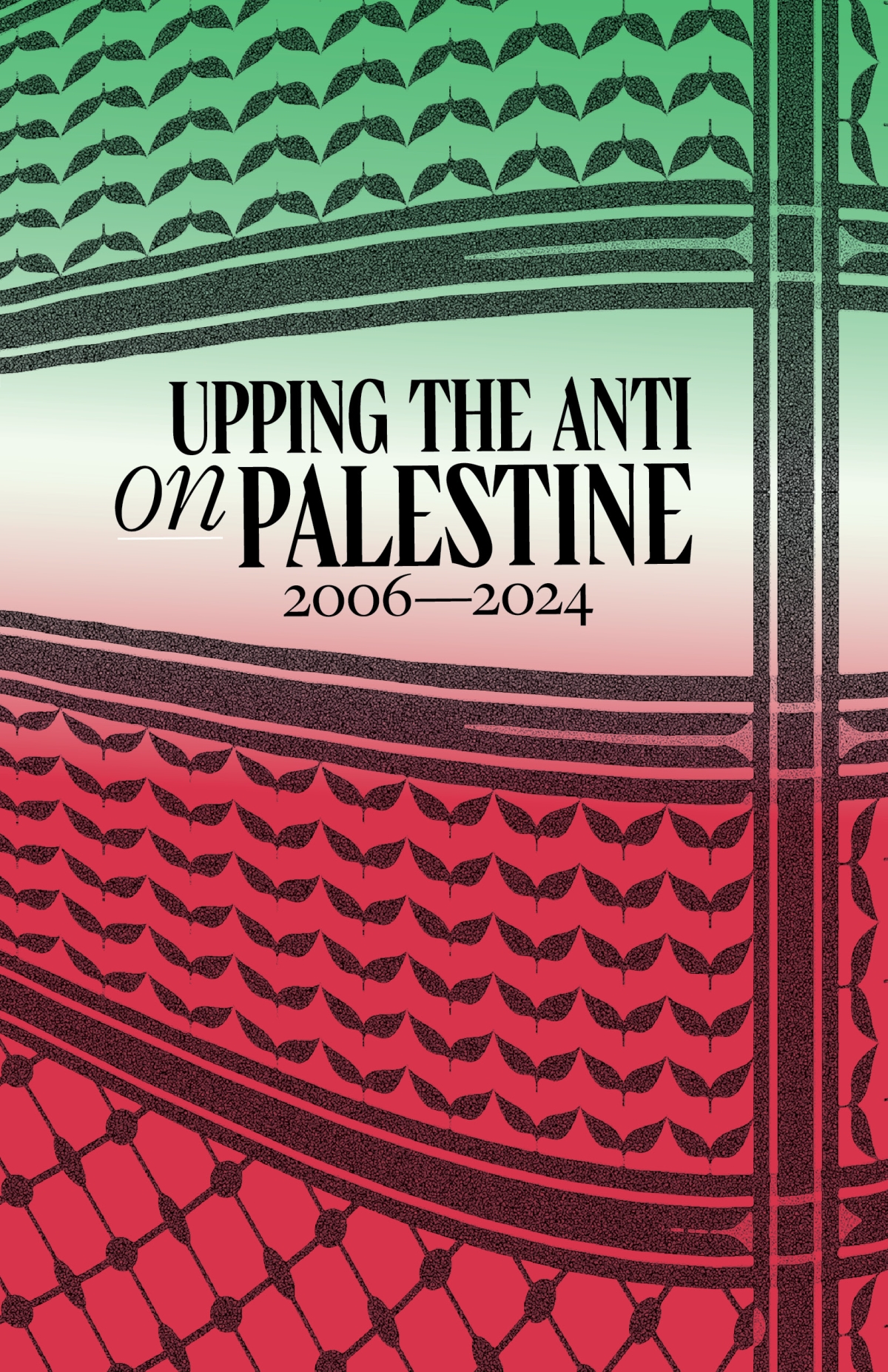Interviews
-
.png) Interview
InterviewShut Down the War Machine
Building a Grassroots Anti-War Movement
The recent 2022 invasion of Ukraine by Russian forces has captured the attention of the world, highlighting the importance of anti-war organizing and de-escalation on a global scale. While organizers on the Left have long rallied for an end to war in Afghanistan, Yemen, Syria, and beyond, this distinctly European conflict has rekindled Cold War divisions between East and West, exposing both the authoritarian neoliberalism of Putin’s regime and NATO’s role in cementing US imperial dominance across the globe.
Before these recent events unfolded, Sakura Saunders sat down with Rachel Small and Simon Black in August of 2021 to talk about their respective anti-war organizing in Canada. In what follows, Sakura, Rachel, and Simon discuss Canada’s role in global hegemony, the power of workers to develop international anti-war movements, the importance of direct action as a method of intervention, and current work to bridge anti-war movements with struggles for a just transition away from fossil fuels. -
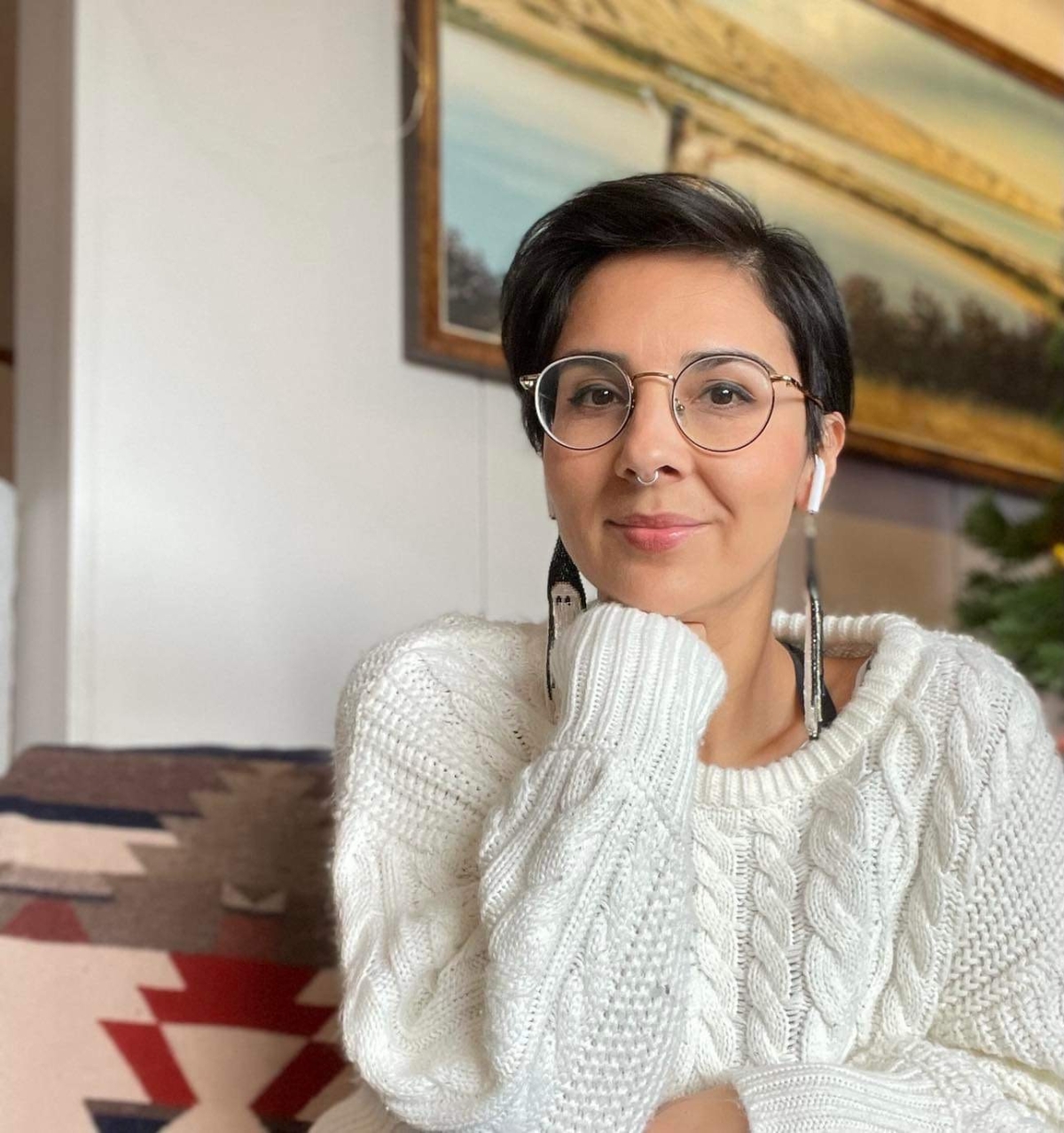 Interview
InterviewTo Centre Indigenous Knowledge
From Pipelines to Land Back to Just Transition
With climate and environmental movements still dominated by white activists and non-profit staff, there has been a growing movement of Indigenous-centred organizing addressing climate change, fighting pipelines, and engaging in militant forms of direct action. While mainstream environmental movements remain cen- tred on a single-based issue, Indigenous organizing has focused on decolonization, land back, and sovereignty with the struggle to fight
climate change and fight for a just transition.
Exploring the role of white and non-Indigenous settlers in building power and support, Eriel Tchekwie Deranger offers insight into the current struggles against environmental devastation.
This interview took place on Oct 17, 2021, and was conducted by Lana Goldberg. Many thanks to Amelia Spedaliere for transcribing the interview. -
 Interview
InterviewRevolutionary Horizons and the Role of Theory
An Interview with Sam Salour of the Marxist Education Project
Every week, Sam Salour sits down (on Zoom) with a couple dozen other intrepid readers, and works through Marxist texts, each member of the week’s gathering reading a few lines at a time, out loud. It’s a slow way to get through Capital, but one can really get a handle on concepts like commodity fetishism or primitive accumulation if you have the patience and dedication to talk it out over two months in a context where no question is too basic. It is indeed Sam’s patience, careful explanations, and guidance that carry these reading groups forward. Upping the Anti’s Sharmeen Khan — herself an attendee of these reading groups — sat down with Sam to talk about the project, and more importantly, the role and place of theory in radical movement work.
-
 Interview
InterviewThe Defense of Cognitive and Actual Territories
An Interview with Yasnaya Elena Aguilar Gil
The Defense of Cognitive and Actual Territories
-
Interview
Fighting to Teach: Rank-and-File Educators Organizing in Ontario
An Interview with Sarah Vance
Fighting to Teach: Rank-and-file Educators Organizing In Ontario
-
 Interview
InterviewChile’s Social Explosion
An Interview with Emilio Dabed and Pablo Vivanco
The catalyst for the 2019 uprising in Chile was an increase of up to 30 cents to Transantiago transit fares. High school students in the capital called for fare evasion en masse and posted videos of themselves jumping turnstiles on social media. Carabineros, the Chilean state police, responded with brutal force and on October 18, 2019, people began protesting across the country for a multitude of reasons, many stemming from the consolidation of neoliberalism since the return of democracy in 1990. The ruling class, always out of touch with the reality of the majority of Chileans, was caught completely off guard by the Chilean people’s social demands: an end to state violence and femicides, more public spending, Indigenous rights, a new constitution and more. To understand Chile’s estallido social, or social explosion, in the context of the South American nation’s recent history, Pamela Arancibia spoke to Emilio Dabed and Pablo Vivanco.
-
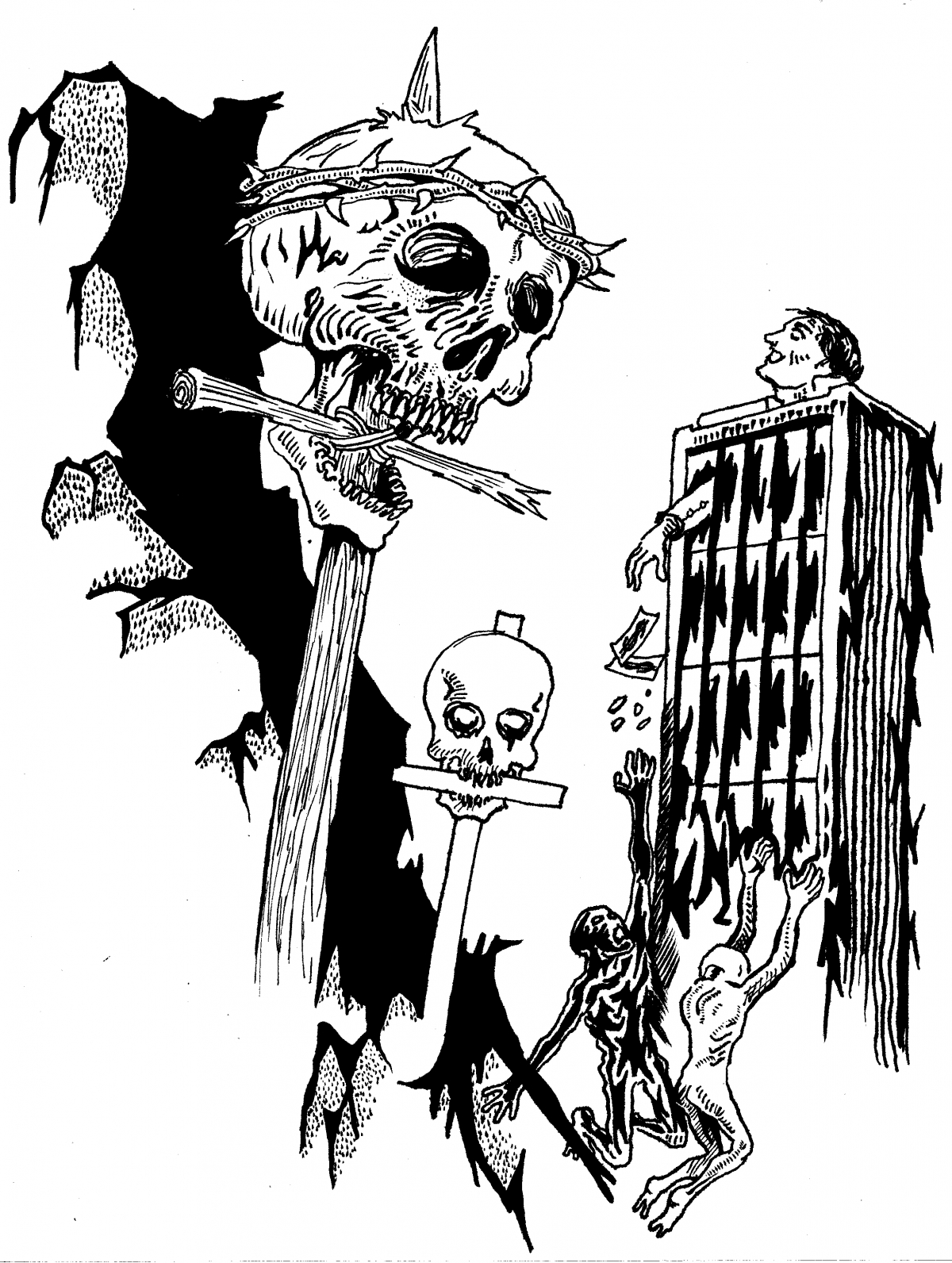 Interview
InterviewVisualizing Resistance
The Politics of Art in Radical Anti-Fascist and Indigenous Movements, An Interview with Gord Hill
Gord Hill, also known by the pseudonym Zig Zag, is an activist and
artist from the Kwakwaka’wakw nation on Northern Vancouver
Island. He has been involved in Indigenous peoples’ and anti-globalization
movements since the 1990s and took part in organizing efforts
to resist the 2010 Vancouver Winter Olympics. As a comic artist, Gord’s
work documents resistance movements of oppressed peoples around the
world, including in his graphic novels The 500 Years of Resistance
Comic Book (2010), The Anti-Capitalist Resistance Comic Book
(2012), and most recently The Antifa Comic Book (2018). -
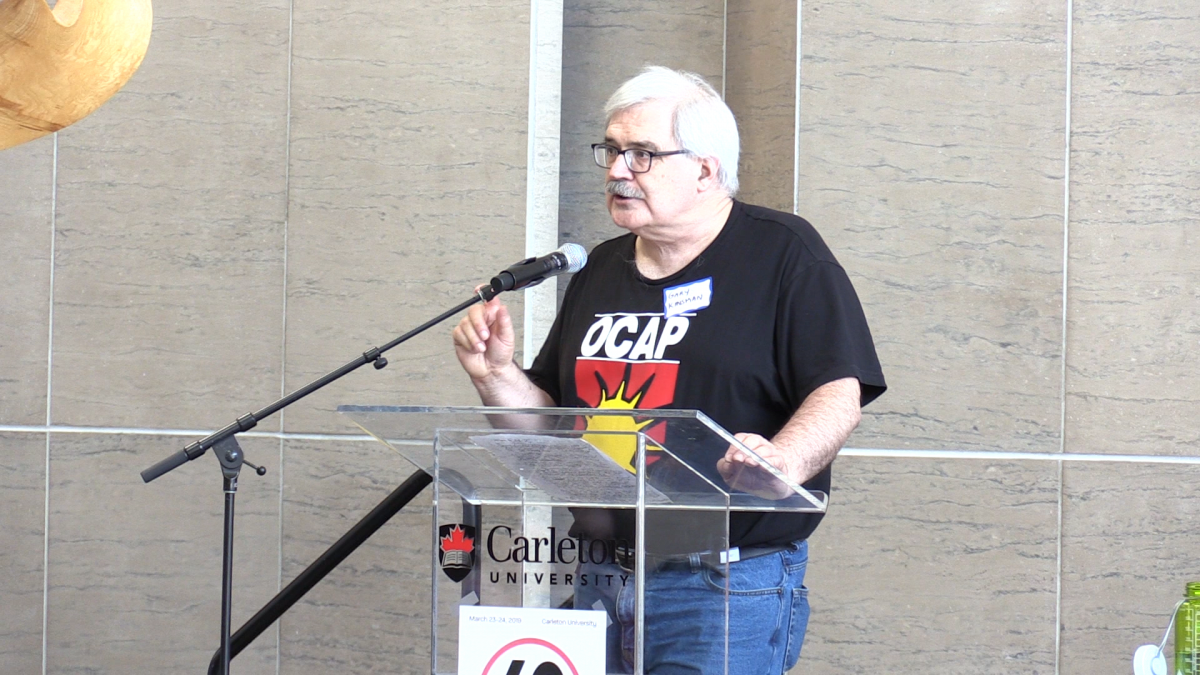 Interview
InterviewAgainst the Mythologies of the 1969 Criminal Code Reform
An Interview with Gary Kinsman
In June 1969, amidst the rhetoric of the “Just Society,” the White
Paper on the extinguishing of Indigenous sovereignty, and the
early years of state-sanctioned multiculturalism, the Canadian
government passed an omnibus Criminal Code reform bill. The
Omnibus Bill is often cited as the moment homosexuality was
decriminalized in Canada, when Pierre Elliott Trudeau was benevolently
trying to bring about equality for lesbians and gays, or when
reforms established the right of women to access abortion and
reproductive rights. None of these claims are accurate. This interview
with Gary Kinsman, conducted in late March 2019, reflects on
the mythologies of the 1969 Criminal Code reform in light of recent
state actions and how these acts of recuperation and co-optation
impact left queer organizing strategies in the present. -
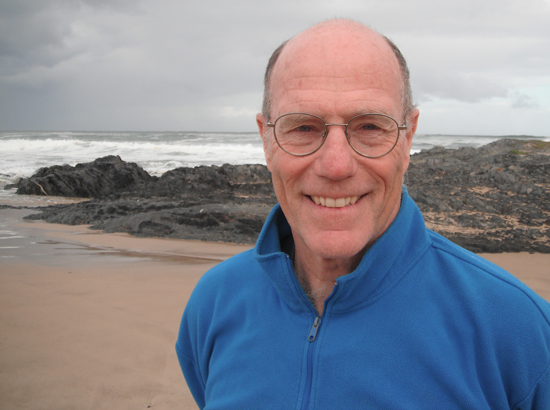 Interview
InterviewOut From the Underground
Reflections on Activism and Abolition
James Kilgore is a researcher and an activist based in Urbana, Illinois. In the 1970s, he became involved with the Symbionese Liberation Army (sla), a left-wing revolutionary group infamous for the use of armed violence to further its political goals, including the kidnapping of media heiress Patty Hearst (although James joined after these events). Following the killing and capture of most sla members, James lived underground for 27 years, mainly in Zimbabwe and South Africa until he was extradited to the us in 2002 to serve six and a half years in prison for explosives and passport fraud charges. Following his release in 2009, he began to work at the University of Illinois and is currently the director of the Challenging E-Carceration project which focuses on developing alternatives to electronic forms of incarceration. Élise Thorburn sat down with James to speak about his life as an activist, both while underground and currently as an organizer in the prison abolition movement.
-
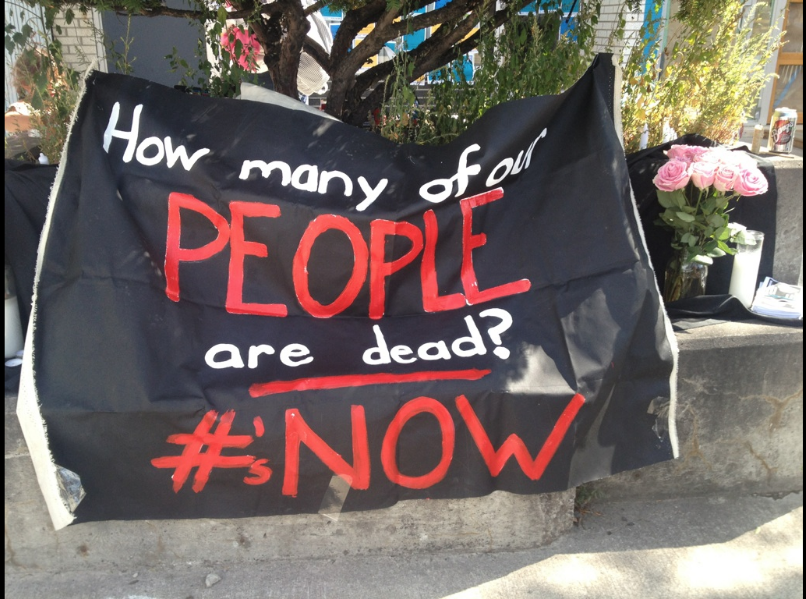 Interview
InterviewThis is Where the Drug War Ends
Reflections from the Frontlines in Moss Park, Toronto
The Toronto Overdose Prevention Site (tops) opened in Moss Park in August 2017 to address the escalating opioid overdose crisis. The Public Health Agency of Canada predicted that at least 4,000 people across the country could die of an opioid overdose in 2017. There were 1,053 opioid related deaths in Ontario between January and October of 2017, representing a 52 percent increase from the previous year.1 The death rate continues to be higher than any other infectious epidemic in the country’s recent history, and shows no sign of slowing down.
Following months of government inaction in the face of the escalating overdose crisis and bureaucratic delays in releasing funds to the three planned Supervised Injection Sites (sis) in Toronto, a group of harm reduction workers and drug users from the Toronto Harm Reduction Alliance (thra)2 took action. thra decided to open an unsanctioned pop-up site in Moss Park—the first of its kind in Ontario. They set up makeshift tents for folks to use drugs in a safer environment, with medical and harm reduction volunteers on hand to intervene in case of overdose. The opening of the tops created pressure on the city of Toronto to speed up the process of opening a temporary sis at Toronto Public Health, The Works, in late August 2017, which was later replaced with the previously planned permanent site.3 tops organizers also worked closely with harm reduction workers and advocates in Ottawa, which led to the opening of Overdose Prevention Ottawa, the second unsanctioned overdose prevention site in Ontario.4 The existence of the Ottawa and Toronto sites also put pressure on the provincial government. After five months of operation, the Ontario government started accepting applications for the opening of Overdose Prevention Sites (ops) all over Ontario.5
As of March 2018, the tops had over 5,000 people use the service for injections alone and the volunteer-run group has reversed over 185 overdoses.6 The site continues to run seven days a week, operated entirely by volunteers. Nanky Rai and Gunjan Chopra spoke with two organizers, Matt and Fiona, a month and a half into the project.
Since this interview was conducted, another overdose prevention site has opened in Toronto’s west end neighbourhood, Parkdale. With the recent election of Doug Ford as premier, the future of all harm reduction sites in Ontario is in jeopardy.

